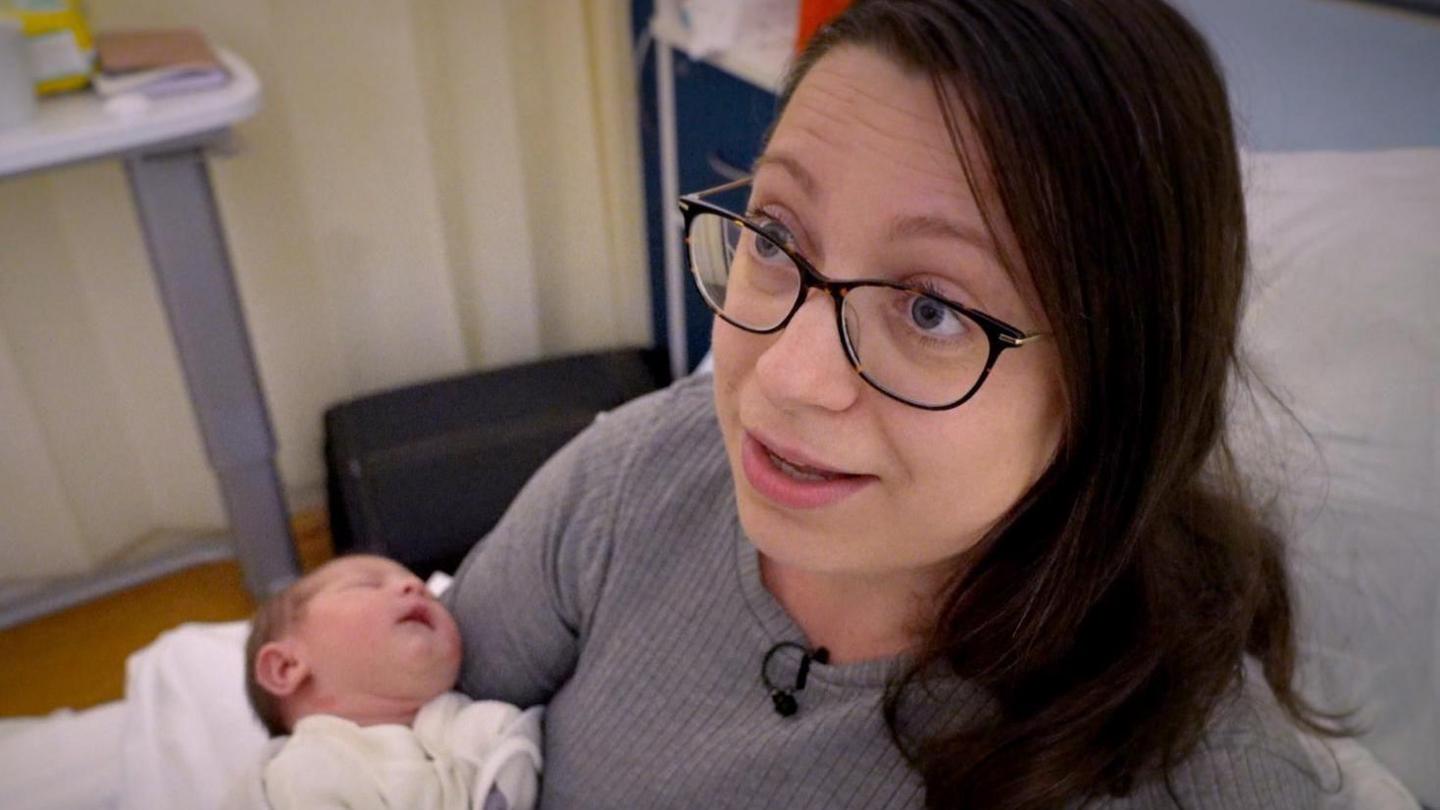Genomic study of newborns 'could be life-changing'

The Generation Study will look at the genetic make-up of up to 100,000 newborn babies in England
- Published
A study offering newborn babies "cutting-edge genomic screening" with the hope of identifying rare but treatable illnesses could be "life-changing" for families, doctors have said.
Gloucester Royal Hospital and Stroud Maternity Hospital are joining a nationwide study that aims to spot up to 200 conditions, before symptoms appear.
Doctors believe The Generation Study could be "revolutionary", however concerns have been raised around ethics and privacy.
Director for Research, Innovation and Genomics at Gloucestershire Hospitals, Noel Peter, said: "There are many inherited conditions, that if you identify early, the treatment can be life-changing."
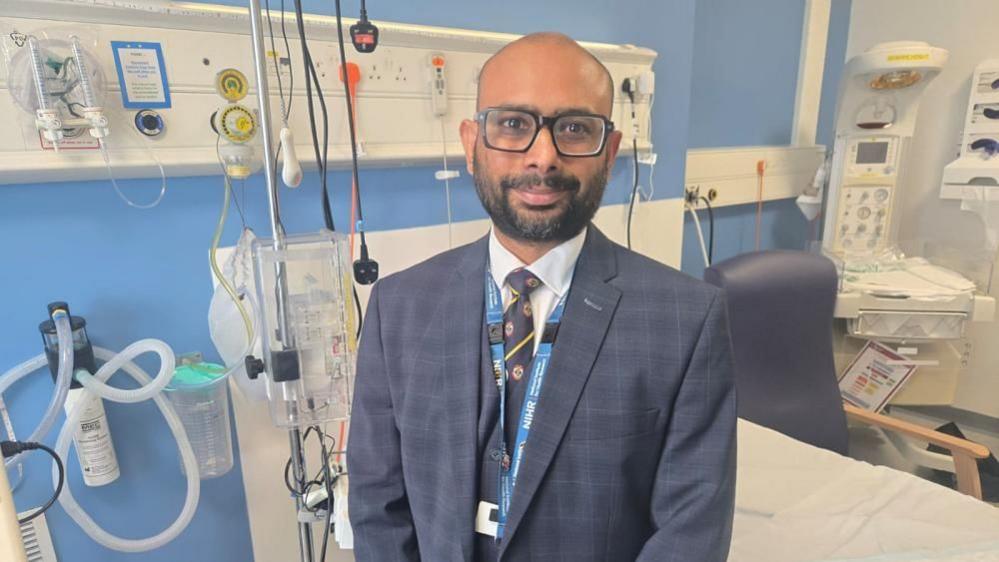
Noel Peter said the study offered patients a "unique opportunity" to be part of a "genomic revolution"
The study will recruit up to 100,000 babies across England, with families given the chance to participate during pregnancy or shortly after childbirth.
It is being carried out by Genomics England, a research company owned and funded by the Department of Health and Social Care.
Before a newborn leaves hospital, a blood sample is taken from the umbilical cord and is sent for testing.
If the sample shows signs the baby may be at risk from a condition, their parents are contacted and a test can be arranged with the hope of getting an early diagnosis.
Mr Peter said this allows his team to be "more proactive than reactive".
However, GeneWatch UK - a not-for-profit research group who look at the impact of genetic science and technologies - are concerned about negative impacts on families.
Director Dr Helen Wallace believes the risk of false positive results - whereby the presence of a condition is incorrectly indicated - may cause parents "unnecessary worry".
"We all have genetic errors or mutations and not all of us get ill. So that means there will be a lot of unnecessary testing and parents who are worried when there baby isn't going to get sick," she said.
A Genomics England spokesperson said they had taken "extensive steps" to limit false positives.
"Any newborn who has a suspected condition will receive follow-up care in the NHS to confirm whether the condition is present," they added.
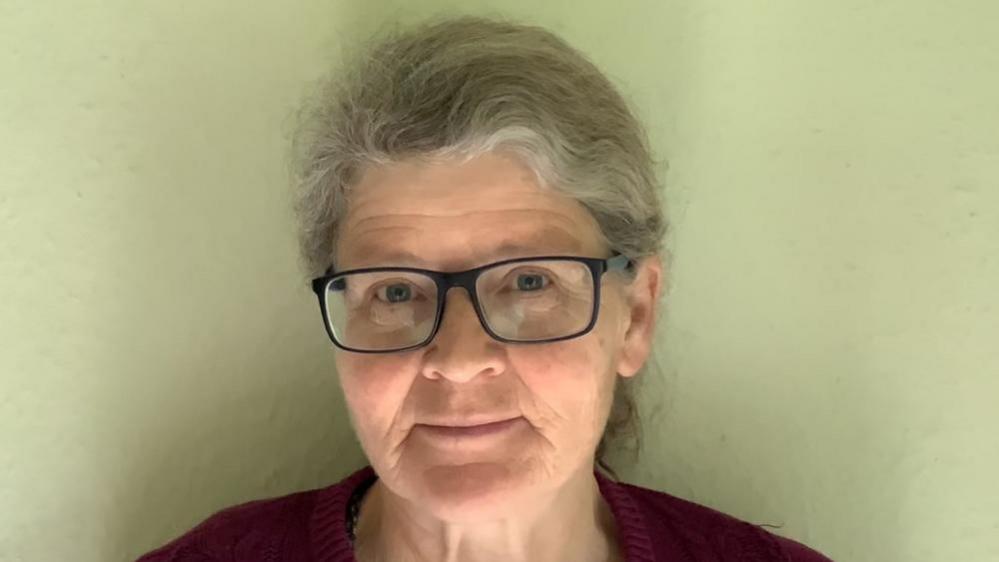
Dr Helen Wallace of GeneWatch UK believes screening "often does more harm than good"
Dr Wallace also said she was worried the data gathered may be at risk of being "open to misuse."
Genomics England said they had "robust systems in place to protect the consented, de-identified data provided by participants."
"Access to the data is carefully controlled, with an independent committee in place to ensure only approved individuals from approved institutions will have access," a spokesperson added.
The Department of Health and Social Care have been approached for comment.
Recruitment for the study at Gloucestershire Hospitals closes March 2027.
Follow BBC Gloucestershire on Facebook, external, X, external and Instagram, external. Send your story ideas to us on email or via WhatsApp on 0800 313 4630.
Related topics
- Published17 October
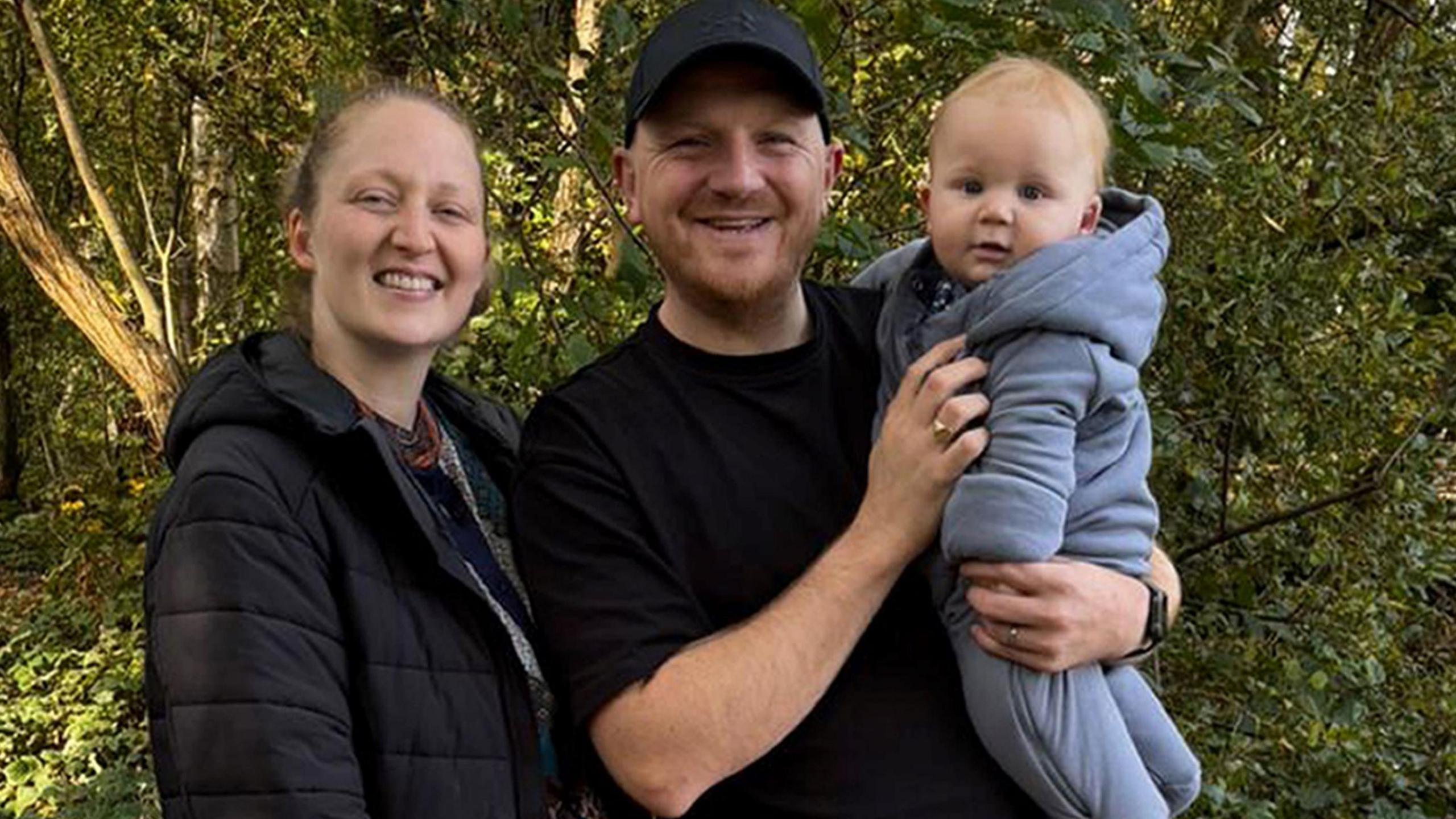
- Published11 January
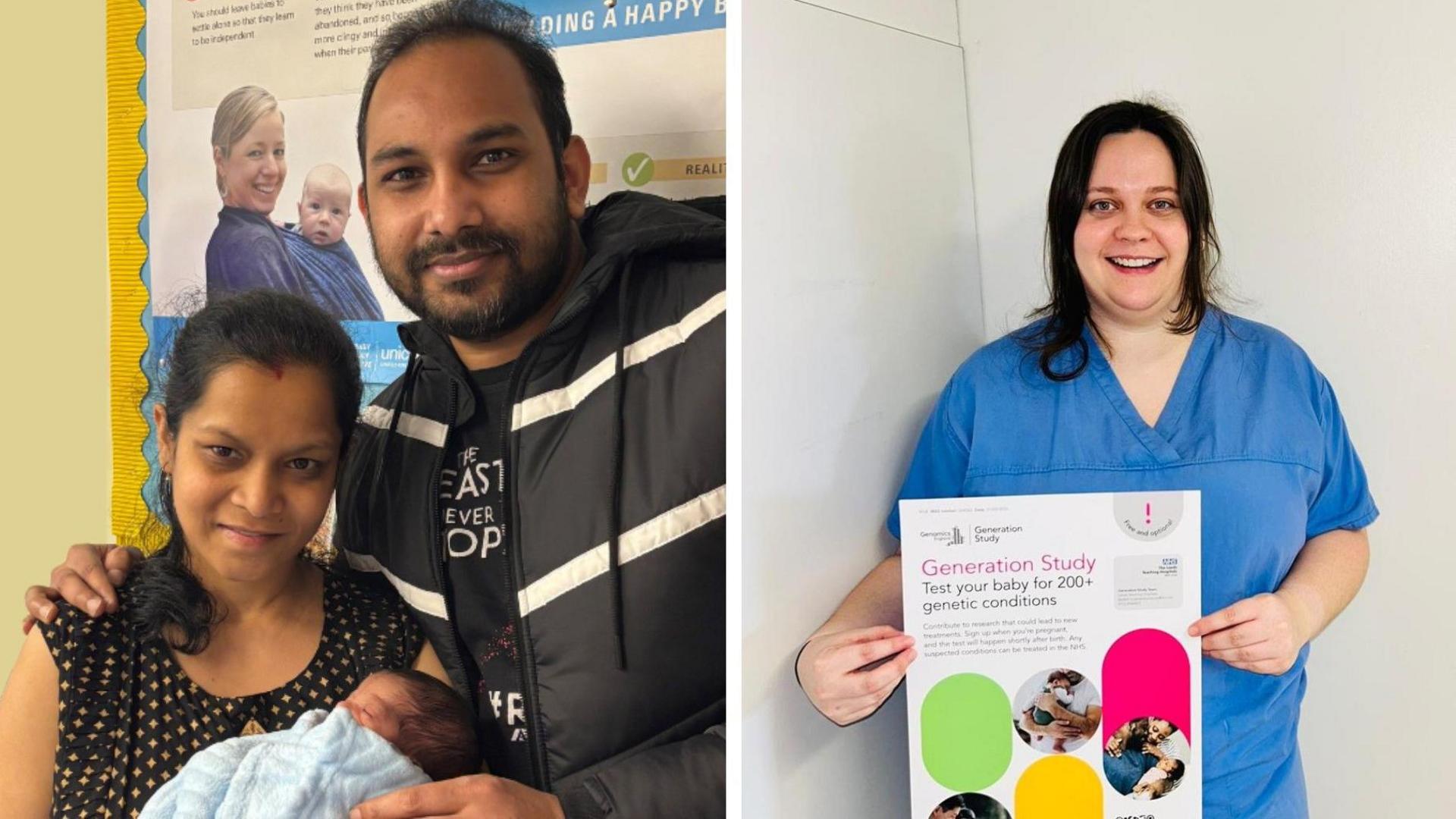
- Published3 October 2024
